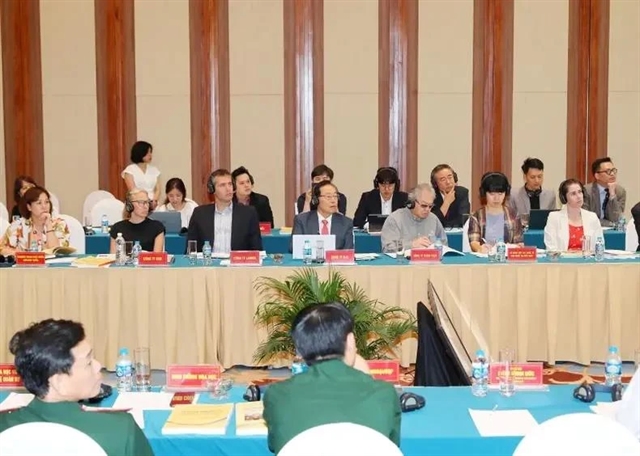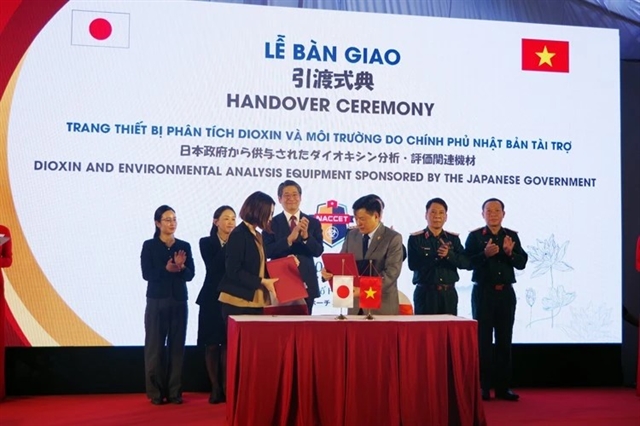 Society
Society

 |
| The Japanese Government-funded equipment for dioxin and environmental analysis is handed over to the Chemical Corps. — VNA/VNS Photo |
HCM CITY — The Japanese Government-funded equipment for dioxin and environmental analysis was handed over to the Chemical Corps on Thursday, aiming to assist Việt Nam in settling consequences of toxic chemicals left from wartime.
At the event in HCM City, Miho Hanai, Director of Japan’s Crow company, and Major General Hà Văn Cử, Commander of the Chemical Corps and Director General of the National Action Centre for Toxic Chemicals and Environmental Treatment (NACCET), signed the handover record.
The equipment includes a laboratory outfitted with 25 dioxin and environmental analysis systems. They are expected to help enhance the capacity of NACCET and the Chemical Corps in assessing and monitoring the settlement of toxic chemicals left over from the war in Việt Nam.
The project, carried out between 2019 and 2023, involved a total investment of over US$2.8 million USD, including more than $2.7 million in non-refundable aid from the Japanese Government and counterpart funding from the Vietnamese Government. The Ministry of National Defence served as the managing agency, with NACCET overseeing project execution.
It aims to bolster Việt Nam's capabilities of investigating, assessing, and treating areas contaminated with toxic chemicals, particularly Agent Orange/dioxin. It also looks to transfer equipment, train personnel in equipment operation and use, and upgrade laboratory infrastructure for NACCET’s branch in the southern region.
Senior Lieutenant General Hoàng Xuân Chiến, Deputy Minister of National Defence and head of the Standing Office of the National Steering Committee for the Settlement of Post-War Unexploded Ordnance and Toxic Chemical Consequences (Steering Committee 701), underscored that addressing war-left toxic chemical contamination is a pressing and profoundly humanitarian task.
He extended heartfelt gratitude to the Japanese Government and people, highlighting that this support reflects the strong cooperative relationship between the two nations and also contribute to their shared efforts to help settle war legacies and protect the environment in Việt Nam.
He expressed confidence that the provision of 25 modern systems under the project will greatly help to improve Việt Nam's capacity of analysing, assessing, and remediating dioxin-contaminated areas. This initiative is also expected to accelerate the implementation of Việt Nam’s national plan for post-war toxic chemical/dioxin remediation for the 2021 - 2030 period, while also solidifying NACCET’s role as a leading institution in environmental research, remediation, and protection.
To maximise the benefits of this project, Chiến directed NACCET to efficiently utilise the equipment and actively engage in investigating, surveying, assessing, and remediation of areas affected by toxic chemicals/dioxin. He encouraged the centre to expand international cooperation, attract high-quality human resources, and foster the research and application of advanced technologies in treating hazardous chemicals and environmental pollution. — VNS




